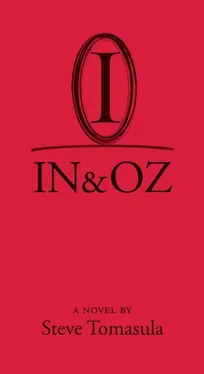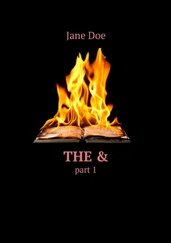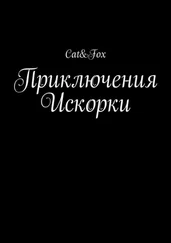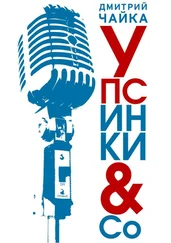Steve Tomasula - IN & OZ
Здесь есть возможность читать онлайн «Steve Tomasula - IN & OZ» весь текст электронной книги совершенно бесплатно (целиком полную версию без сокращений). В некоторых случаях можно слушать аудио, скачать через торрент в формате fb2 и присутствует краткое содержание. Год выпуска: 2012, Издательство: University of Chicago Press, Жанр: Современная проза, на английском языке. Описание произведения, (предисловие) а так же отзывы посетителей доступны на портале библиотеки ЛибКат.
- Название:IN & OZ
- Автор:
- Издательство:University of Chicago Press
- Жанр:
- Год:2012
- ISBN:нет данных
- Рейтинг книги:5 / 5. Голосов: 1
-
Избранное:Добавить в избранное
- Отзывы:
-
Ваша оценка:
- 100
- 1
- 2
- 3
- 4
- 5
IN & OZ: краткое содержание, описание и аннотация
Предлагаем к чтению аннотацию, описание, краткое содержание или предисловие (зависит от того, что написал сам автор книги «IN & OZ»). Если вы не нашли необходимую информацию о книге — напишите в комментариях, мы постараемся отыскать её.
is a heady, avant-garde book, rooted in convincing characters even as it simultaneously subverts the genre of novel and moves it forward.
IN & OZ
IN & OZ
A novel not only for fiction lovers, but also for artists of all stripes,
creates a fantasy that illumines our own world as it lucidly builds its own.
IN & OZ — читать онлайн бесплатно полную книгу (весь текст) целиком
Ниже представлен текст книги, разбитый по страницам. Система сохранения места последней прочитанной страницы, позволяет с удобством читать онлайн бесплатно книгу «IN & OZ», без необходимости каждый раз заново искать на чём Вы остановились. Поставьте закладку, и сможете в любой момент перейти на страницу, на которой закончили чтение.
Интервал:
Закладка:
CHAPTER NINETEEN
That night, Mechanic arced the last weld on the bouquet he was making for Designer. He tilted his helmet up to admire his handiwork, licked his lips, then hit the START button. The enormous orchid of metal groaned; the fenders he had hammered into petal shapes shrieked the scream of sheet-metal being separated by the Jaws of Life as they opened in bloom: the hundreds of side-view mirrors that he had salvaged from smashedup cars of Her design rose pistil-like from its center….
Waiting to be pollinated….
Excitedly, he closed up his garage, then set off to find Composer so he could add the last missing bit: a piece of music that would play from the orchid and speak of the difference Composer had been so eloquent about that night in the tavern, a piece of music, or silence, so eloquent that Designer would know that how things worked was at least as important as how they looked — if they didn’t, in fact, comprise a whole, a single beat, an infinite slide-whistle.
He found Composer alone in his hole. Before he could even get the request out, though, Composer said, “She wants me to compose a piece of music for her.”
“Who?” Mechanic asked happily. The moment he asked, though, he saw the grim expression on Composer’s face and held his breath, dreading but unable to believe what he knew would be the answer.
“Designer,” Composer said. Mechanic felt his body become a crash-test dummy, the wooden heart inside of that dummy another dummy with a dummy’s heart and all of them broken against a wall. By the time his body had warmed enough for him to resume breathing, Composer was saying, “… and wants me to compose a piece of music that can be whistled by the grill of the automobile she is now designing.”
“A piece of? — Of audio music?” Mechanic finally managed to get out.
Composer nodded. “There’s more. She’s convinced her company to create a Department of Automotive Musik Engineering. They want me to become its Maestro and Chief Engineer.”
Mechanic wanted to think this was a joke. It was the only way his mind could register the barely recognizable quacking he was hearing. “Then you? — And HER? — Would work together?”
Composer looked away. The two of them were silent a long time, feeling the blackness of the hole deepen.
“And you?” Mechanic asked. “What do you think?”
Whereas once Composer would have answered with a sneer at what they considered music to be, now he shrugged. “Overnight I would have a worldwide audience,” he said. Overnight I would be paid. And paid well for my work.”
“But it would be your work, not your music,” Mechanic said. Composer again fell into the silence of the justly-accused, and the stillness allowed the ghosts of hundreds of smoky conversations to drift up around them. As from a far away place Mechanic heard a ghostly Yankee Doodle —with Composer’s voice at its edge gushing over the utter genius of the Mallarmé arrangement with its last phrase containing the entire melody the way a Russian nesting doll contains a smaller duplicate of itself . “Halve the note and double the beat and place the song within itselffff,” Composer’s specter sang to the tune, “And sing a song about itself that’s caught up in its singggggg-inggggg….”
That song saved my soul, he’d always said, claiming that it taught him the truth about all music. And life: that it was only by paying the strictest attention to music, and not by pandering to the masses, that a musician could discover a subject grander than music. Remembering his claim now, Mechanic spat back at him, “Then Le Petomane was just a story? A fairy tale, meant to amuse drinking buddies?” Again Composer looked away, cut to the quick this time, and for a moment, Mechanic regretted throwing back in his face the French vaudeville performer who was able to fart at will and with such force that he would begin his act by blowing out the candles on a birthday cake. Through the course of his performances, Composer would always say whenever the subject of artists prostituting their work came up, Le Petomane would spread and flex his buttocks to play musical scales, folk tunes, light opera, till at the end of each evening, he would ask the audience to solemnly rise as he farted out La Marseillaise . “So great was his popularity, a shining beacon and logical end for all artists who aspire to an audience,” Composer would conclude, “that he earned one hundred times more than the dozen top opera singers of the day combined.”
“I’ve only come to see that there’s another lesson in Yankee Doodle ,” Composer now answered somberly: “That a penny whistle can lighten the human heart.” Looking up from his clasped hands he added, “And what’s so wrong with that?”
In OZ, vanilla is called Crema de las Angelitas.
In IN, the main street is named Main Street.
CHAPTER TWENTY
Each dawn, Mechanic pushed his car up the steep slope of the bridge to the booth where he worked. $1.00…$1.00…$1.00…. Each sundown he struggled to hold back his car by its rear bumper so it wouldn’t get away as he guided it back to its garage under the bridge. Each day he pushed it up, only to find himself the next day, like Sisyphus, pushing it up again. As he did, drivers whizzed by, shouting as they passed, “Get a horse!”
That vision he’d had of Poet (Sculptor) coasting downhill on her bike often came to him in those moments, her arms out in victory, hair whipping behind in the breeze, and the contrast made him wonder why both the going up and the coming down was so difficult for him.
In the evenings he worked on abandoned cars, unleashing his frustration and fantasies on their bodies. In the morning, he would push his car uphill, other cars whizzing past, their horns blaring as he imagined he was leaving IN. Yet at day’s end, he would return, the bumper of his car straining to escape his grip, his heels dug in to slow its descent as he was dragged behind by gravity and inertia.
Returned by nature to the garage he had set out from that morning, he would sit on its lift at the center of its concrete floor — an inmate of his own life, yet also its exile. Banished by whom? he wondered, operating the hydraulic controls of the lift to rise. By himself, he knew, by his former life as a mechanic which he no longer fit. By his lack of imagination. The lift locked in its upper-most position, the same height — and no more — that it reached every time. By his inability to escape into the life of an artist, like Composer or Photographer, he had to admit, but also through the fault of his parents for not escaping for him and giving him a different life: peasants before him whose generic stock seemed to infuse his very cells….
His hands had already grown to a size and thickness that allowed their calluses to fit the locations of worn spots on the tools he inherited. His fingerprints, yellow swirls on work-hardened pads, made his hands resemble his father’s so much that he had to blink to clear his mind and make his hands become once again his own. If having hands that “were his own” even made any sense.
“We are literally star dust,” Photographer had said, explaining how the surface of the earth was the accumulation of billions of years of cosmic dust that had fallen from space: cosmic dust, or dirt, that mingled with the dust of all of their fathers and mothers, too, nourishing the plants and animals we eat, becoming the stuff of our cells, which once they die, return to dust. “All ancient cultures express this singular truth in their creation myths,” he had said, “the Hebrews punning Adam — first man — with Ad-ahma , or dirt/earth, the Latins punning Humans with humus , mud again. Did you know that ninety percent of household dust is comprised of dead skin cells?” he asked. “Think of it, everywhere we look, dirt is turning into men and women who are turning into dust. What story could be more surreal than this, if by ‘sur’ we mean ‘Super’ and not ‘Un’?” When Mechanic said he did not know, Photographer continued to explain how Poet (Sculptor) grasped the dust-to-dust palindrome more profoundly than any of them: this was why she took up dirt as her language; not all things can be said in every language even if language always shapes what is said. What she had to say was best put in a vocabulary of loam, of soil, of mud, of dust, of humus, of earth, of ground, of adobe, of alluvium, of silt, of clay, of sand, of sediment….”
Читать дальшеИнтервал:
Закладка:
Похожие книги на «IN & OZ»
Представляем Вашему вниманию похожие книги на «IN & OZ» списком для выбора. Мы отобрали схожую по названию и смыслу литературу в надежде предоставить читателям больше вариантов отыскать новые, интересные, ещё непрочитанные произведения.
Обсуждение, отзывы о книге «IN & OZ» и просто собственные мнения читателей. Оставьте ваши комментарии, напишите, что Вы думаете о произведении, его смысле или главных героях. Укажите что конкретно понравилось, а что нет, и почему Вы так считаете.











